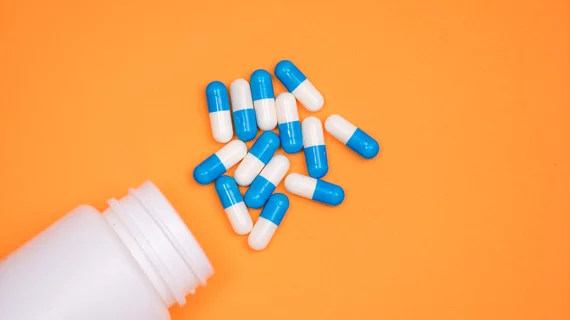HHS proposal tackles drug rebates
HHS has proposed lowering drug costs by targeting the rebate system, which has recently come under scrutiny as an opaque setup that keeps drug prices high.
The proposed rule, released Jan. 31, encourages manufacturers to pass discounts directly on to patients, instead of providing pharmacy benefit managers (PBMs) the rebates. It does so by expressly excluding rebates on prescription drugs paid by manufacturers to PBMs, Part D plans and Medicaid managed care organizations from safe harbor protection under the Anti-Kickback Statute.
“Every day, Americans—particularly our seniors—pay more than they need to for their prescription drugs because of a hidden system of kickbacks to middlemen,” HHS Secretary Alex Azar said in a statement. “This proposal has the potential to be the most significant change in how Americans’ drugs are priced at the pharmacy counter, ever, and finally ease the burden of the sticker shock that millions of Americans experience every month for the drugs they need.”
Rebate changes
The rule would also create a new safe harbor for prescription drug discounts offered directly to patients, and drugmakers would pay PBMs a fixed fee for their arrangement services. The rule would apply to Medicare and Medicaid managed plans only.
According to HHS, the proposal addresses the incentive of drugmakers to raise their list prices every year as they face pressure to provide larger rebates. Rebates that average 26 percent to 30 percent of a drug’s list price could be passed directly to patients, according to HHS.
Under the current rebate system, where PBMs negotiate rebates on behalf of insurance companies and receive a portion, patients may end up taking on more cost sharing, according to Azar.
For example, patient’s pay a coinsurance for a prescription drug at the list price. However, with a rebate, the actual cost of the drug is typically much lower, but the patient’s coinsurance responsibility remains the same, effectively making them pay a higher percentage of the drug’s price.
“It’s just one reflection of how list prices matter and how these third-party payments aren’t accruing to the patients who need them most,” Azar said in a speech on Jan. 15.
Seniors with high costs under their Medicare Part D plans would stand to benefit the most under the proposal, according to HHS.
Under fire
The prescription drug rebate system has increasingly come under fire, with PBMs getting a reputation as the middlemen in the industry at a time when rising drug prices have been thrust into the national spotlight.
For most PBMs, including Express Scripts, CVS Caremark and OptumRx, rebates are serious business. The system has allowed PBMs to pocket the savings from negotiated rebates. Some PBMs, including CVS Caremark, have recently pledged to pass on 100 percent of rebates to plan sponsors. In 2018, the company returned 98 percent of rebate savings directly to clients, about $300 million, according to CVS Health Larry Merlo.
The proposal prompted mixed reactions from the pharma space.
An association that represents PBMs, the Pharmaceutical Care Management Association (PCMA), shifted the blame of high drug costs to manufacturers in a statement.
“While we are reviewing the proposed rule, we stand ready to work with the Administration to achieve our shared goal to reduce high drug costs,” PCMA President and CEO JC Scott said. “Pharmacy benefit managers (PBMs) are part of the solution to high cost prescription drugs. Drugmakers alone set and raise prices.”
PCMA also expressed it was concerned over the viability of alternatives to rebates, as drugmakers don’t currently offer up-front discounts.
The Pharmaceutical Research and Manufacturers Association (PhRMA), which represents pharma manufacturers, applauded the proposal.
“This proposal would also help to fix the misaligned incentives in the system that currently result in insurers and pharmacy benefit managers (PBMs) favoring medicines with high list prices,” PhRMA President and CEO Stephen J. Ubl said in a statement.
The proposed rule is scheduled to be published on the Federal Register on Feb. 6. Find the unpublished version here.

